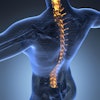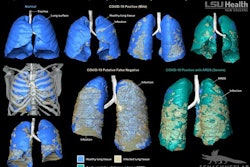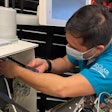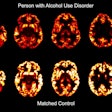Dear AuntMinnie Member,
Among the many negative health effects of COVID-19 on various organ systems, you can add issues with the eyes. A new study out of France has found that the disease could have ophthalmological manifestations.
Researchers wanted to investigate reports of COVID-19 causing eye abnormalities, so they used MRI to scan 129 patients with severe forms of the disease. They found that 7% of the patients had nodules in various areas of the eyes.
Meanwhile, a group from Northwestern University used MRI along with other modalities to document COVID-19's impact on the musculoskeletal system. And a group from the University of Pennsylvania used the modality to find that COVID-19 can lead to leukoencephalopathy -- diseases of the brain's white matter.
Get these stories and more in our MRI Community.
COVID-19 and burnout
Unfortunately, the impact of COVID-19 goes beyond just clinical manifestations. Healthcare providers on the front lines of the pandemic are finding that the disease is taking a major toll on their staff.
On the positive side, radiology personnel seem to be less susceptible to COVID-19-related burnout than other staff, according to a new study by researchers from Singapore. They found that levels of job dedication and teamwork were higher among radiology staff.
PET and heart disease
Finally, new research out of Spain has some fascinating findings. Investigators tracking 4,000 middle-aged bank workers in a longitudinal study of cardiovascular risk factors broke out a subgroup to receive PET brain scans.
They found that individuals with higher levels of cardiovascular risk also had lower brain metabolism on PET -- possibly a sign that early changes in blood flow could be affecting brain function.
In other news in our Molecular Imaging Community, be sure to check out a story on how flortaucipir-PET images were used to determine a person's risk of progressing to Alzheimer's disease, as well as our coverage of a study on how PET with a radiolabeled F-18 fluoroestradiol radiotracer can determine whether patients with estrogen receptor-positive, human epidermal growth factor receptor 2-negative metastatic breast cancer can benefit from specific treatments.



















